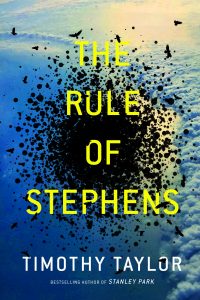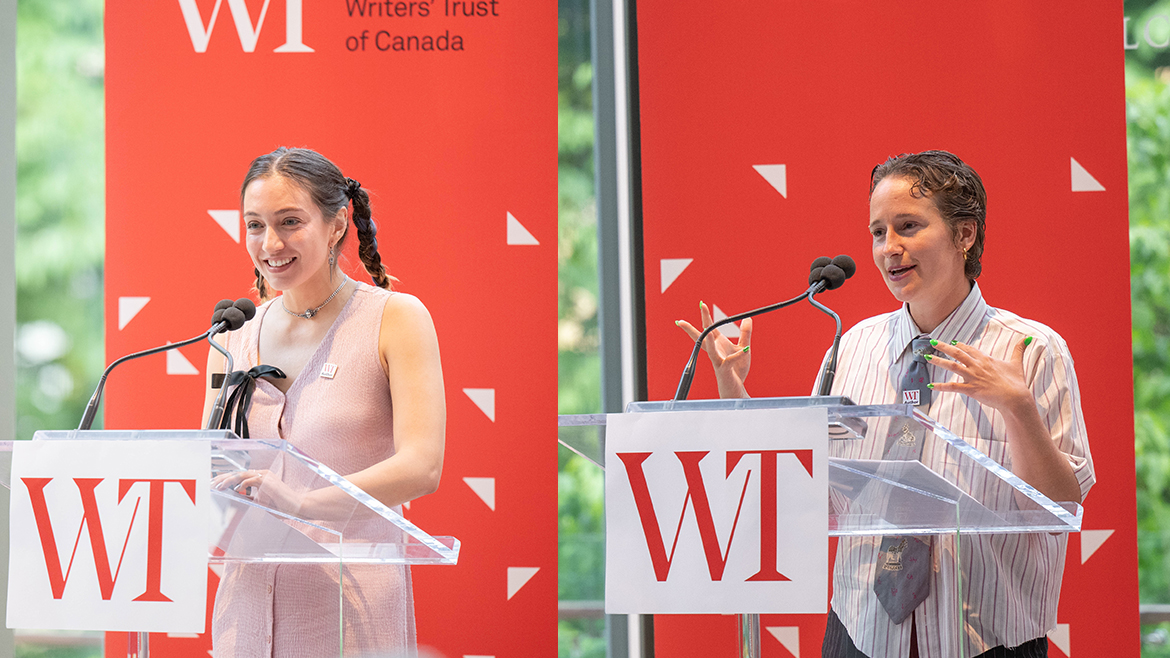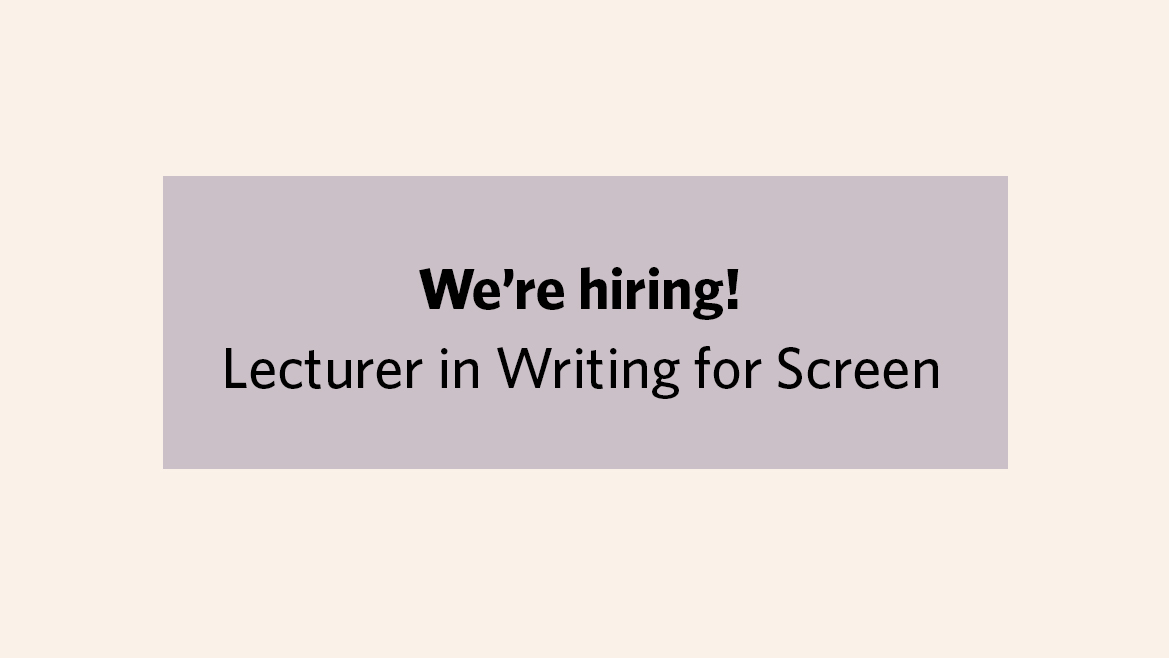

Timothy, congratulations on your fourth novel (8th book in total)! Tell us about The Rule of Stephens.
Eight, yes. Four novels, a collection of short stories, and three nonfiction titles. I never would have believed it possible when the first one came out in 2001. Perseverance is maybe the biggest part of it.
The new novel is about Catherine Bach, a biotech entrepreneur who survives a serious commercial airplane crash and starts to believe her luck has turned against her. The title derives from a principle that Catherine has long held dear: that the observable universe must work in one of two mutually exclusive ways, either in accordance with the cosmology of Stephen Hawking or that of Stephen King. When things start going really strange in her business and personal life after the crash – including being contacted by one of the other few survivors who has his own decidedly troubling tale to tell – Catherine has to question whether the Rule of Stephens still holds true.
Where did the idea for the novel come from and why is it relevant?
I’ve long been intrigued by the idea of a blurry zone between that which science seems to comfortably explain and that which eludes obviously material explanations. Love is a famous example, seeming as it often does to spring from nothing. The impossible “uncaused cause”.
But more troubling things also fall into this category of experience: tragedies notably. Survivors of trauma do frequently lose themselves in a maze of self-recrimination, as if our own selves rose up in duplicate to oppose us. That’s the trap in which Catherine finds herself ensnared. Warring others. Warring herself. When your perfect opposite heaves to on the horizon, course fixed and bearing down, that’s the fight of your life. No other combatant can mirror you so perfectly, can split your defenses with such intuition.
What’s this war in the heart of nature? Why does nature vie with itself? The land contend with the sea? Is there an avenging power in nature? Not one power, but two?
That’s Terrence Malick quoted. But Catherine ends up asking the same questions. I ask them myself all the time, stopping just short of Manichean explanations. I do work to remain a rationalist after all, just like my heroes. Or a fuzzy rationalist, perhaps?
Do you feel that The Rule of Stephens differs from your previous work and if so, why?
Candidly, no novel of mine has been as personal. Three of the most important people in my life died in 2016 in the space of a few months. I lost several others that year in different but equally troubling ways. It was a bloodbath year, an annus horribilus, from which a tale of complicated survival emerged.
Could you talk about the process and the biggest challenges you faced in creating the characters and the world they find themselves in?
The research load was light. Start-up culture is a real thing, and I read about that. I read books on “Lean” start up methodologies, venture capital financing, tech company culture and related matters. But in the end the data gathered by that method was a distant background soundtrack to the more immediate thrumming of the engine of character. All I cared about was Catherine, as I wrote. What she was feeling. What she was going through. The psychological features and dynamics of a cherished worldview slipping steadily in its explanatory power, such that the world grows inexplicable, friends and colleagues begin to fall away, the face in the mirror becomes strange.
Catherine is put through a lot in this book. I tried to go the distance with her. And, in a way, I think that method-process has contributed to my sense that 2018 will be a better year. Come raise a glass at my launch party to that exact idea. I wish it for everyone.
You mentioned in a piece you wrote that the process of writing a novel eventually moves from solo to communal. Could you elaborate on what this means in practice and perhaps tell us a little about the community you refer to?
In my own writing practice this means most crucially that you have to be prepared to do the solo hours first, because it’s hard to entice the community into conversation – by which I mean trusted early readers, agents, editors etc. – before you have that work done.
That said, both my last two novels have had a communal element to them. In both cases, I allowed a character name in the book to be auctioned off in advance by the VAG to raise money. So, win the bid and you get your name in my book. In the case of The Blue Light Project, I asked that the name not be shown to me until the manuscript was finished, so it was slipped to me in a sealed envelope which I tucked away in a safe place. After finishing, I opened it to find the name “Bruce Haden” which could not have been a better name for the intelligence operative who engages with the main character at key moments. The real Bruce Haden, a well-known Vancouver architect, was thrilled to find himself in that ambiguously villainous role.
For The Rule of Stephens, I was told the name right away: “Kate Speir”. And it was such a lovely, sharp-edged name, with such an aura of decisiveness and combat-readiness about it,that I plugged it straight away into the story as Catherine’s nemesis, an equity fund manager who launches an unwelcome bid for Catherine’s company and who, Catherine learns troublingly, looks physically very much like her.
So I lived with a real world person in my mind through much of the writing of this fiction. And on completion, when I finally went looking for the real Kate Speir to find out who she was, I learned she was also in finance. More strangely, having long before picked out pictures of people in magazines to assemble an composite image of Catherine, I found out the real world Kate Speir *could have been her sister*… !
Coincidence??
Based on the vast experience you have what advice would you give aspiring writers?
Go wide. Get involved in many pursuits. Scatter yourself because the focus will follow. Learn new languages, argot or actual. Seek out a place where you don’t know anybody. Talk to strangers. Keep notebooks over journals. Don’t take pictures of your food unless the restaurant is empty or the chef is your cousin.
Buy art you can afford (it sometimes starts at free). Collect eccentrics. Disagree with impunity. Go easy on people, they’re mostly not writers. Go easy on yourself, most of the time writers don’t feel like writers either. Read nonfiction if you write fiction and vice versa. Know exactly what you like and distrust your own opinions. Listen to recorded nature sounds as necessary to still the angst that arises without warning or visible symptom in the heart of the heart of the urban soul.
Ignore advice without regret. And collect eccentrics, did I mention that?
Finally, what excites you about writing today? Has this changed over the years?
It hasn’t much. And that’s a good thing. We’re all still writing what seems to come from nothing in our imaginations and ours hearts. I can’t really think of a more exciting and invigorating feature of writing than that. Uncaused causes. Bring it, I say. Writers live in the same blurry zone that my character Catherine enters unwillingly in The Rule of Stephens. Only as a writer, I wouldn’t have it any other way.
The Rule of Stephens is available to purchase from February the 6th 2018, but it is on presale (with limited signed copies) here


